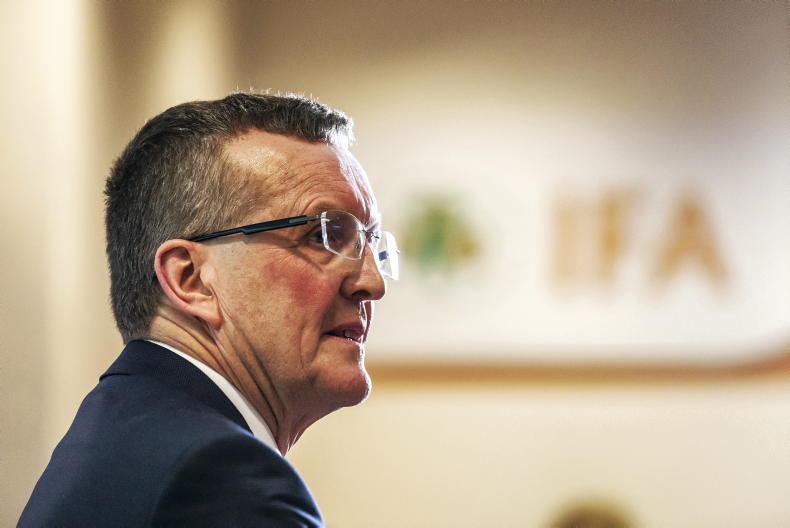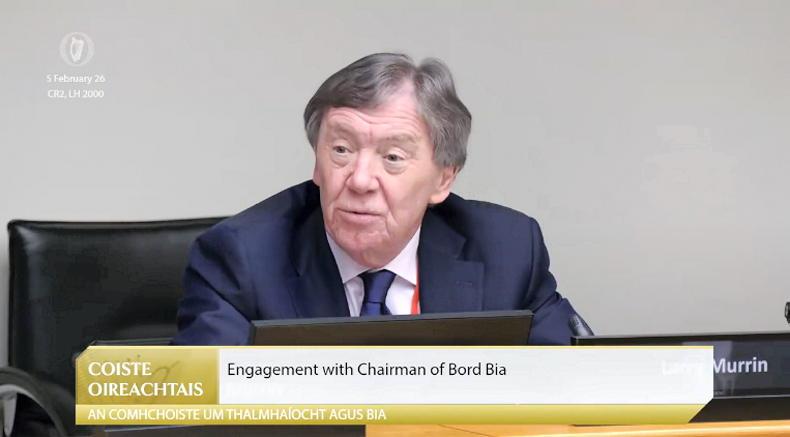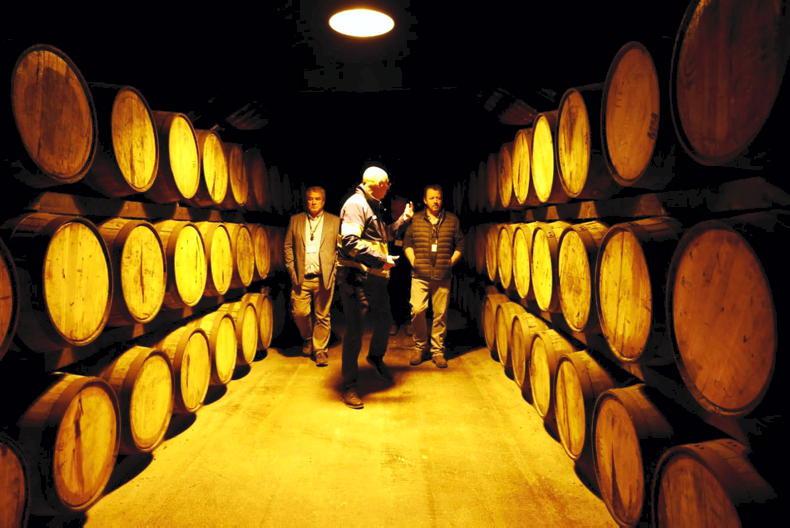Irish farmers are addressing the emissions challenge and technologies are coming on stream which will make a real difference, according to IFA president Tim Cullinan.
The IFA president highlighted that “farmers are changing their management practices to optimise efficiency and are using available technologies to reduce emissions, which will deliver significant reductions in the coming years”.
He made the assertations following a report from the Environmental Protection Agency (EPA), published on Wednesday, which warned that emissions from Ireland’s agricultural sector are set to increase by 1.9% over the 2020-2030 period if existing climate measures are continued. EPA general director Laura Burke called on Irish farming to “transform” in order to meet its climate targets.
Technology and research
However, Cullinan said there is a “significant body of scientific research and technological innovations emerging, such as feed additives and breeding technologies, that will help deliver reductions”.
“The EU has recently approved an emissions-reducing feed additive and more are coming on stream. Advances are also being made in breeding and other areas.
“The EPA’s own analysis shows that with the additional measures (WAM) proposed in the 2021 Climate Action Plan agriculture can achieve a reduction in emissions of over 22% by 2030 compared with 2018 which is within the sectoral ceiling range set by the Government,” he said.
Food production
The Tipperary farmer warned that article two of the Paris Climate Agreement “clearly identifies that global climate targets should not be achieved at the expense of food production”.
“Now, more than ever, the world needs Irish food so our focus must be on reducing emissions per unit of output rather than on reducing output.
“The reality is that reducing food production in Ireland will lead to increased production in other countries with a higher carbon footprint, resulting in carbon leakage” he said.
With this in mind, Cullinan insisted that “we cannot look at Irish climate policy in isolation”. He said: “The Government must factor in the risk of carbon leakage and the importance of farming to our economy. The Climate Act requires the Government to factor both of these into their decision making.”
Read more
Agriculture emissions to rise 1.9% by 2030 with ‘existing’ measures – EPA
Irish farmers are addressing the emissions challenge and technologies are coming on stream which will make a real difference, according to IFA president Tim Cullinan.
The IFA president highlighted that “farmers are changing their management practices to optimise efficiency and are using available technologies to reduce emissions, which will deliver significant reductions in the coming years”.
He made the assertations following a report from the Environmental Protection Agency (EPA), published on Wednesday, which warned that emissions from Ireland’s agricultural sector are set to increase by 1.9% over the 2020-2030 period if existing climate measures are continued. EPA general director Laura Burke called on Irish farming to “transform” in order to meet its climate targets.
Technology and research
However, Cullinan said there is a “significant body of scientific research and technological innovations emerging, such as feed additives and breeding technologies, that will help deliver reductions”.
“The EU has recently approved an emissions-reducing feed additive and more are coming on stream. Advances are also being made in breeding and other areas.
“The EPA’s own analysis shows that with the additional measures (WAM) proposed in the 2021 Climate Action Plan agriculture can achieve a reduction in emissions of over 22% by 2030 compared with 2018 which is within the sectoral ceiling range set by the Government,” he said.
Food production
The Tipperary farmer warned that article two of the Paris Climate Agreement “clearly identifies that global climate targets should not be achieved at the expense of food production”.
“Now, more than ever, the world needs Irish food so our focus must be on reducing emissions per unit of output rather than on reducing output.
“The reality is that reducing food production in Ireland will lead to increased production in other countries with a higher carbon footprint, resulting in carbon leakage” he said.
With this in mind, Cullinan insisted that “we cannot look at Irish climate policy in isolation”. He said: “The Government must factor in the risk of carbon leakage and the importance of farming to our economy. The Climate Act requires the Government to factor both of these into their decision making.”
Read more
Agriculture emissions to rise 1.9% by 2030 with ‘existing’ measures – EPA










SHARING OPTIONS